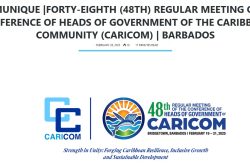Dear Editor,
The week after my letter, `Power distributed equitably provides ideological value to the culturally embedded individual’ (SN 2-22-22) was published, my West Coast landsman, Dr. Bertrand Ramcharan addressed the same issue in his column, Existentialist philosophy and the definition of a Guyanese identity’ (SN 3-1-22). The difference was that while I merely proposed that our “Guyanese identity” be disjunctured from our ethnic identities and be promoted based on our civic nationalism constitutionally acknowledged in all of us as citizens of the Guyanese state, Dr. Ramcharan proposed a wider aspirational desiderata through the adoption of the philosophical premises of existentialism.
Far be it for me to delve into the thicket of existentialism in a letter, save to say that Dr. Ramcharan’s adumbrated 12-point statement of the “essence of Guyanese identity” would be a contradiction in terms since existentialists view definitions of ourselves on the basis of class, ethnicity, race or nationality etc.” as illusory and undermining our ability to live “authentically”. I would suggest Franz Fanon’s nuanced responses to Jean Paul Sartre on the “facticity of blackness” as questioning some of the premises of existentialism from a Caribbean standpoint.
However, I would like to ask Dr. Ramcharan as to what political mechanism he proposes for us to create the “existentialist principle of inter subjectivity” among our diverse Guyanese groups. The Nigerian academic he quoted, Prof. Marcel Onyibor, evidently agreed with my formulation to “conclude that the problem of national identity and crisis of integration is put into focus not necessarily by ethnic diversity but by the contemporary problem of injustice especially that of consistent marginalization of some groups within the polity”. Hence, we agree with Owolabi (2003: p. 2) that “the legitimate survival and integration of a nation state depends on how far the state as a legal institution can perform its role of distributing benefits and burdens among groups justifiably without any group feeling justifiably aggrieved.”
Prof. Onyibor, however, appears to agree with the Marxist approach proposed in various iterations by Burnham, Jagan and Rodney when he actually concluded, “… the strength of ethnicity lays in the structural weakness of class phenomenon in Nigeria (Otite, 1996). Thus, it is apparent that development of class consciousness with its inherent horizontal inter-ethnic linkage will create webs of social relationships capable of reducing if not eradicating the problems of ethnicity.” Does Dr. Ramcharran also propose this path for us?
Sincerely,
Ravi Dev









